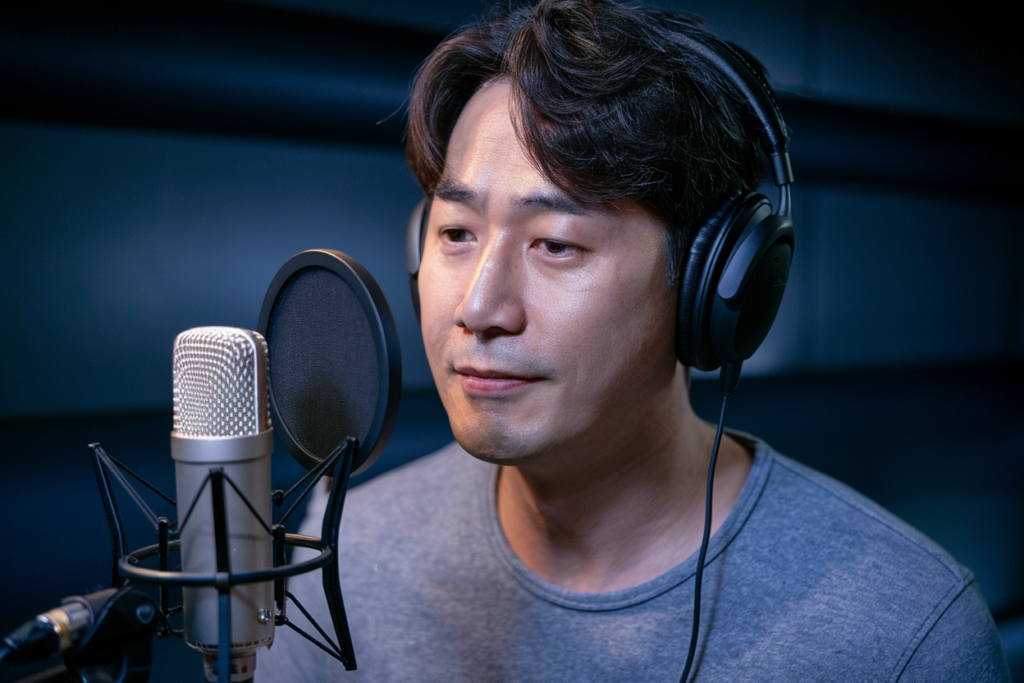Key Takeaways
- Understanding Korean Accents: Familiarize yourself with the various regional accents in Korea, such as Seoul, Busan, and Jeolla, to enhance authenticity in your voice-over work.
- Phonetic Characteristics Matter: Pay attention to the unique phonetic traits of each accent, including vowel pronunciation and consonant articulation, which affect how characters are portrayed.
- Authenticity Enhances Performance: Choosing the right accent significantly impacts the authenticity of your performance, helping audiences connect with characters on a deeper level.
- Target Audience Considerations: Understand your target audience when selecting an accent; different accents can evoke varying emotional responses depending on who will be listening.
- Project Requirements Influence Choice: Always align your chosen accent with project guidelines and character portrayal needs for greater accuracy and believability in your performances.
- Practice through Immersion: Engage with authentic materials such as K-dramas and podcasts to refine your skills through focused listening and active imitation.
Ever wondered how to choose a Korean accent for voice-over work? With the rise of K-dramas and K-pop, more people are diving into the world of Korean accents, but picking the right one can feel overwhelming. You want your voice to resonate with authenticity, whether you’re dubbing a character or creating engaging content.
Understanding Korean Accents
Understanding Korean accents is essential for effective voice-over work. Various regional accents exist, each with unique phonetic characteristics that can influence your performance.
Regional Variations
Korean boasts several regional variations, including the Seoul dialect and dialects from Busan, Incheon, and Jeolla. Each accent reflects distinct cultural backgrounds and local expressions. For instance, the Seoul accent is often considered standard and widely understood. If you’re aiming for a neutral accent suitable for broader audiences, this may be your go-to choice. However, if you want to convey authenticity in specific contexts or characters—like those from Busan or Jeolla—embracing these regional nuances enhances your voice performance.
Phonetic Characteristics
Phonetic traits play a crucial role in shaping how accents sound. For example, vowel pronunciation varies across regions; the ‘o’ sound shifts towards an ‘u’ in some areas. Consonant articulation also differs significantly; certain sounds might be softer or harder depending on the region. As a voice artist delving into these accents, pay attention to pitch and intonation variations as well—the Seoul dialect typically has a higher pitch compared to others.
Familiarizing yourself with these phonetic particulars not only improves delivery but also helps create memorable characters that resonate with audiences. Engaging directly with native speakers or using authentic resources can sharpen your skills further as a voice actor adapting to diverse roles within Korean media landscapes like K-dramas and films.
By grasping both regional variations and phonetic characteristics of Korean accents, you position yourself as a versatile voice talent ready to tackle various projects effectively.
Importance of Accent in Voice Over
Choosing the right accent for voice-over work plays a crucial role in delivering an authentic performance. Accents not only shape how characters sound but also impact audience perception and connection.
Impact on Authenticity
Authenticity matters in voiceover projects, especially when representing different cultures or regions. A well-executed accent can transport listeners into a specific setting, enhancing their overall experience. For instance, using a Seoul dialect for a character from that region brings credibility to the portrayal. When you understand and embody these phonetic traits, your delivery resonates more with audiences, making your performance memorable.
Audience Connection
Connecting with your audience is vital in any voice acting role. An appropriate accent fosters familiarity and relatability, allowing listeners to engage emotionally with the content. If you’re dubbing a character from Busan, utilizing that specific accent invites viewers to relate better to the character’s background. Ultimately, when you choose an accent that aligns with the narrative context, it creates deeper connections and enhances storytelling effectiveness in voiceovers.
Factors to Consider When Choosing an Accent
Choosing the right Korean accent for your voiceover project involves several key considerations. Each factor contributes to how well your performance resonates with the audience and fits the project’s needs.
Target Audience
Understanding your target audience is critical. Different accents can evoke varying emotional responses, so consider who will listen to your voiceovers. Are you addressing a global audience or focusing on a specific demographic? For instance, if you’re aiming at younger viewers familiar with K-pop culture, the Seoul dialect might be more relatable. However, if your project targets a regional audience from Busan or Incheon, using their local accents enhances authenticity and connection.
Project Requirements
Project requirements play a significant role in accent selection. Review any guidelines provided by clients or producers carefully. Some projects may demand strict adherence to specific accents due to cultural context or character portrayal. If you’re dubbing a character from Jeolla, mastering its unique phonetic traits becomes essential for accuracy and believability in performance. Always ensure that the chosen accent aligns with both the narrative’s tone and stylistic expectations of the project.
By considering these factors—target audience and project requirements—you’ll make informed decisions that enhance your effectiveness as a voice artist in delivering compelling performances tailored for diverse contexts.
Tips for Practicing Korean Accents
Practicing Korean accents involves focused listening and active imitation. You can refine your skills by immersing yourself in authentic materials.
Listening and Imitation
Listening to native speakers is crucial for mastering any accent. Dive into K-dramas, variety shows, or podcasts featuring natural conversations. Pay attention to how characters pronounce vowels and articulate consonants unique to each accent. Mimicking these sounds helps you grasp the nuances of different regional variations like those from Seoul or Busan. Record yourself while practicing; playback allows you to hear discrepancies and adjust your delivery accordingly.
Resources for Learning
Utilizing diverse resources enhances your learning experience. Consider online tutorials, language exchange apps, or social media accounts dedicated to Korean language education. Websites offering phonetic breakdowns of accents serve as excellent tools too. Engaging with communities on platforms like forums or social media can provide valuable feedback from native speakers and fellow learners alike. Explore textbooks that focus on pronunciation specificities related to voice acting; they often include exercises tailored for voice talents looking to improve their craft in this area.
By implementing these tips into your practice routine, you’ll develop a stronger command over various Korean accents, enhancing your versatility as a voice artist.
Conclusion
Choosing the right Korean accent for your voice-over projects is essential for creating authentic and engaging performances. By understanding the unique characteristics of different accents and their impact on audience perception, you can connect more deeply with listeners. Pay attention to your target audience and project requirements to make informed choices that resonate.
Investing time in practice through active listening and imitation will sharpen your skills. Engage with native speakers and immerse yourself in relevant media to refine your accent mastery. With dedication and a keen ear, you’ll be well-equipped to deliver captivating performances that stand out in the competitive world of voice acting.
Frequently Asked Questions
What are the main challenges in selecting a Korean accent for voice-over work?
Selecting a Korean accent for voice-over work can be challenging due to the diversity of regional accents, each with unique phonetic traits. Understanding which accent resonates best with the target audience and aligns with project requirements is crucial for authenticity and effective storytelling.
Why is authenticity important in voice-over performances?
Authenticity in voice-over performances enhances audience connection and credibility. A well-executed accent allows listeners to relate more deeply to characters, making their experiences more engaging while fostering emotional responses that enhance storytelling.
How do different Korean accents affect audience perception?
Different Korean accents can evoke varied emotional responses from audiences. For instance, the Seoul dialect may appeal more to younger viewers familiar with K-pop, while local accents like those from Busan or Incheon add cultural depth and authenticity for regional audiences.
What factors should I consider when choosing a Korean accent for my project?
Key factors include understanding your target audience and specific project requirements. Consider how different accents will impact viewer engagement and whether adherence to a particular dialect is necessary for cultural context or character portrayal.
What practical tips can help me master various Korean accents?
To master Korean accents, focus on active listening and imitation by immersing yourself in K-dramas, variety shows, and podcasts. Record practice sessions, utilize online resources, engage in language exchanges, and seek feedback from communities focused on pronunciation improvement.







